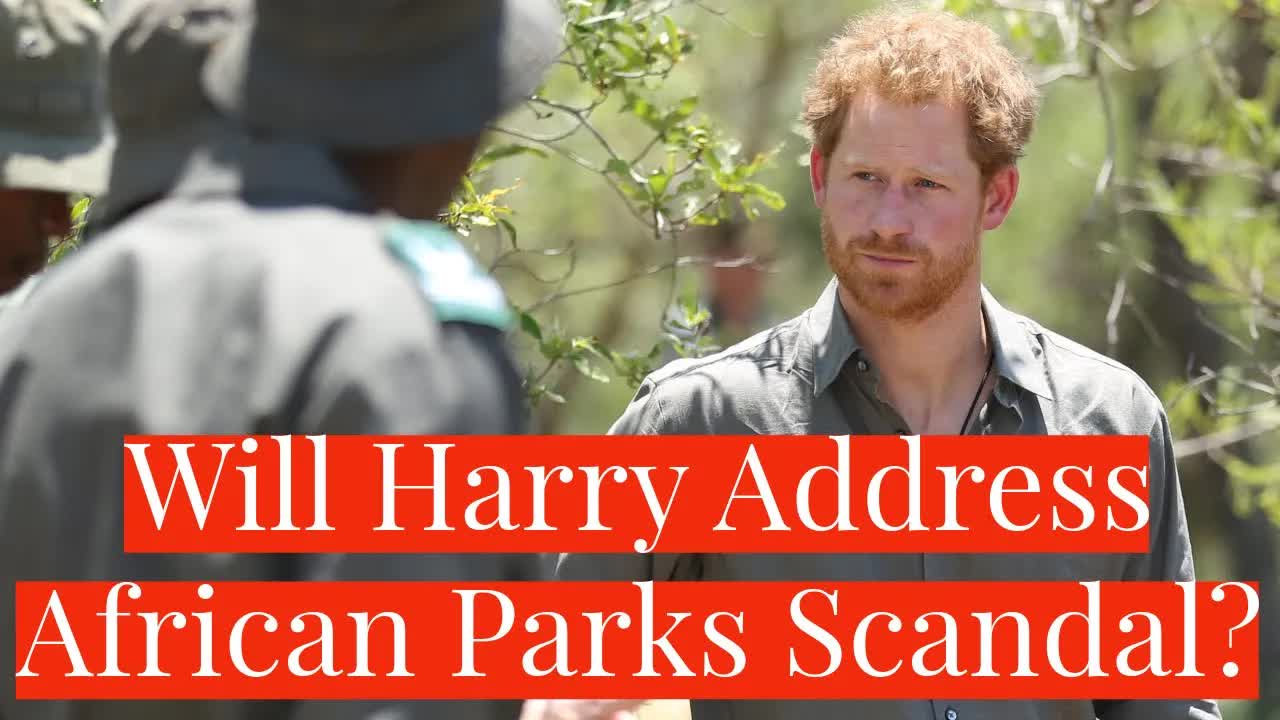Must Read
Prince Harry’s Silence on African Parks Scandal Raises Eyebrows
For months now, questions have swirled around Prince Harry's connection to the African Parks scandal, yet he remains conspicuously silent.
The allegations involving the abuse of the Baka people by guards affiliated with African Parks have been in the public eye, but Harry has not taken a definitive stance or issued a comprehensive statement.
While there was a vague acknowledgment of the situation, many are left wondering what actions he plans to take, especially given his prominent role on the board of the organization.
Prince Harry has long professed his love for Africa, often emphasizing his commitment to the continent and its people.
With a trip to Nigeria on the horizon, one might expect him to address the troubling issues surrounding African Parks more urgently.
As someone who has publicly championed African causes, his lack of emphasis on this investigation raises eyebrows.
Why hasn't he made a stronger effort to investigate the allegations?
It seems contradictory to his proclaimed dedication to Africa.
The media landscape also plays a crucial role in this narrative.
Many people have voiced their concerns online, questioning why journalists aren't holding Harry accountable for his involvement with African Parks.
However, the reality is that covering this story is fraught with challenges.
The regions where these events are occurring are remote and difficult to access, making it nearly impossible for reporters to verify claims or conduct thorough investigations.
The logistical hurdles involved are significant, limiting the scope of reporting on this critical issue.
The Baka people, who inhabit parts of the Democratic Republic of the Congo (DRC), face severe challenges due to the lack of infrastructure and the remoteness of their communities.
Even seasoned journalists would find it hard to navigate these rugged terrains without adequate resources.
In many cases, sending reporters into such areas requires extensive planning, including finding local guides and translators, which adds to the complexity of the situation.
This lack of accessibility contributes to the media's hesitance to cover the scandal in depth.
Recent reports have shed light on the troubling practices within African Parks.
A book titled “Entrepreneurs in the Wild” details allegations of abuse by armed rangers, including torture methods employed against suspected poachers.
These revelations have placed additional pressure on Prince Harry and the organization he represents.
As a board member, many believe he has a responsibility to address these serious accusations head-on.
While African Parks claims to be committed to conservation and community engagement, the allegations suggest a more complicated reality.
The charity operates in several African nations, managing parks that span vast areas, often at the expense of local communities.
Critics argue that the militarized approach to wildlife conservation can disrupt traditional ways of life for indigenous populations like the Baka people.
This colonial dynamic raises ethical questions about the organization's methods and Prince Harry's involvement.
Despite the gravity of the situation, Prince Harry's responses have been largely muted.
He has expressed admiration for African Parks' mission but has not publicly acknowledged the allegations or the need for change within the organization.
His silence is puzzling, especially considering his vocal stance on various social issues.
Shouldn't he be using his platform to advocate for those who are marginalized and affected by these abuses?
As the scandal unfolds, it becomes increasingly clear that the complexities surrounding it are not merely logistical but deeply rooted in historical contexts.
The legacy of colonialism continues to shape the relationship between conservation efforts and local communities.
Prince Harry's romanticized view of Africa may cloud his understanding of the realities faced by those living in these regions.
The Baka people have expressed fear and frustration over their diminishing access to lands that have sustained them for generations.
They feel threatened by the very organizations that claim to protect their environment.
It is a stark reminder that conservation efforts must prioritize the rights and voices of local communities, rather than imposing external solutions that may not align with their needs.
As Prince Harry prepares for his upcoming trip to Nigeria, many are left wondering whether he will take the opportunity to address the ongoing scandal surrounding African Parks.
Will he acknowledge the plight of the Baka people and push for accountability within the organization?
Or will he continue to sidestep the issue, leaving it to be swept under the rug?
His actions in the coming weeks could significantly impact the future of both the charity and the communities it serves.
In the end, the world is watching.
The questions surrounding Prince Harry's involvement in the African Parks scandal are not going away anytime soon.
As calls for transparency and accountability grow, it remains to be seen how he will respond.
The stakes are high, not just for him, but for the communities that deserve to be heard and represented in the conversation about conservation and human rights.








































